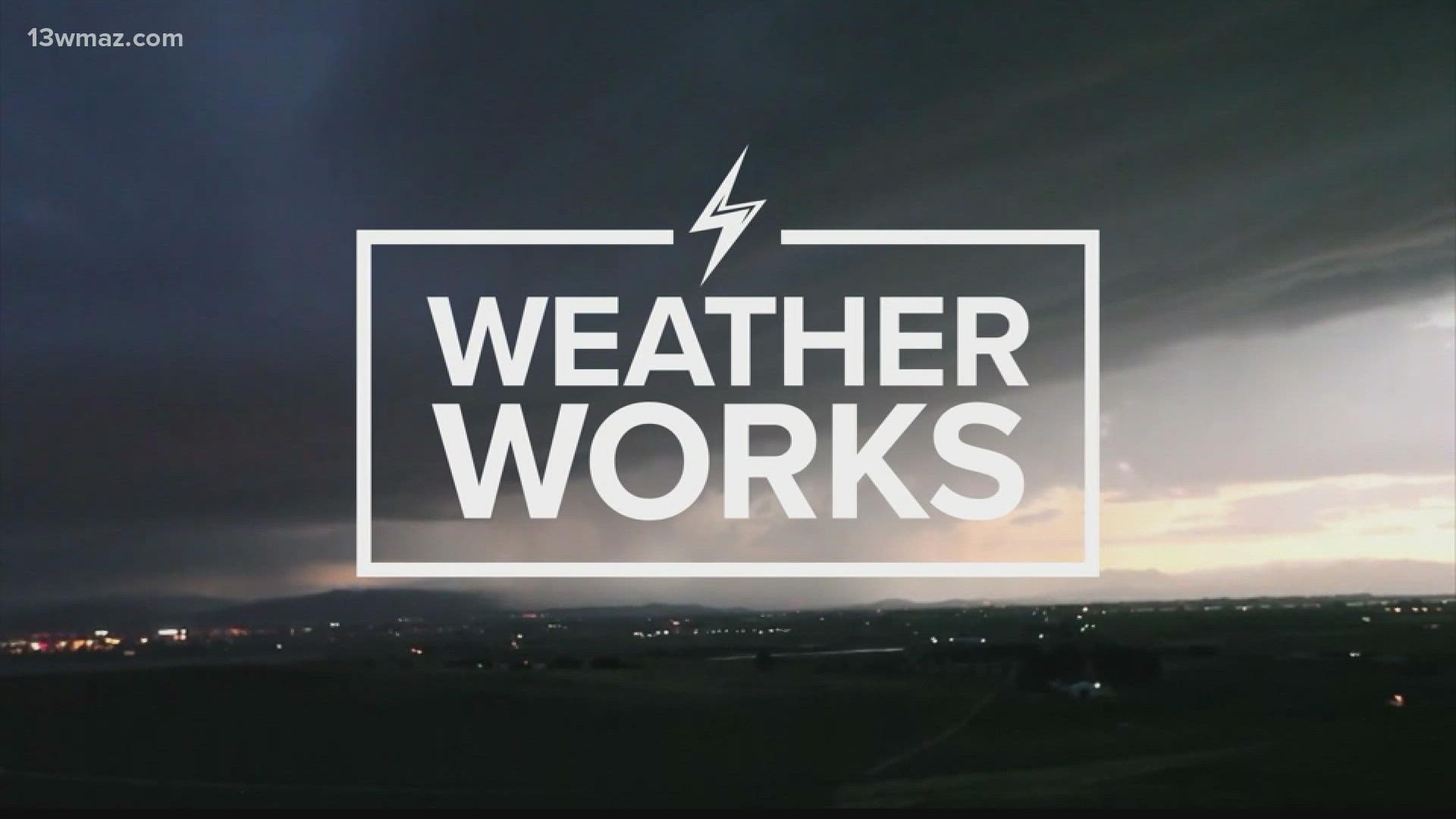MACON, Ga. — As we all know, Central Georgia has a mix of both cities, rural towns and farmland.
During the dog days of summer, where you live can affect how hot the day gets.
This has to do with albedo or the measurement of how much sunlight an object can reflect.
In the city, the combination of asphalt roads and metal buildings easily absorb incoming sunlight. Since roads and buildings are usually made of dark materials, they have a low albedo.
That means that sunlight gets trapped in the area, which causes temperatures in the cities to rise higher than surrounding places.
In the meteorology world, we call this the "Urban Heat Island Effect."
In comparison, rural areas are usually filled with more vegetation. Trees and plants reflect sunlight better than concrete and metal, in turn making the area stay relatively cooler.
Additionally, when places have a lot of plants, the soil has more moisture. That means more evaporation can occur, which cools the air right near the ground.
So if you're looking to escape the heat this summer, get out of the city! Maybe visit a smaller town with less concrete and more vegetation.
That's how your weather works!
RELATED ARTICLES:

